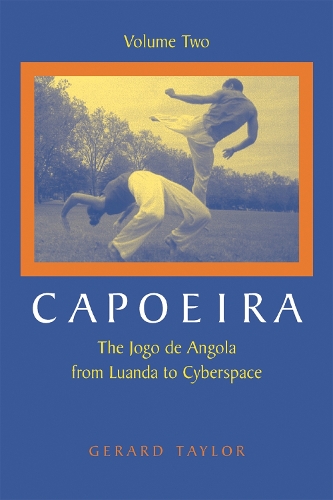
Capoeira: The Jogo de Angola from Luanda to Cyberspace, Volume Two
(Paperback)
Available Formats
Publishing Details
Capoeira: The Jogo de Angola from Luanda to Cyberspace, Volume Two
By (Author) Gerard Taylor
North Atlantic Books,U.S.
North Atlantic Books,U.S.
15th July 2011
United States
Classifications
General
Non Fiction
Folk dancing
793.31981
Physical Properties
Paperback
560
Width 157mm, Height 228mm, Spine 35mm
878g
Description
The second volume of a comprehensive history of the art and sport of capoeira, this book picks up the story where volume I finished: in the first decades of the 20th century. It describes the capoeira "Bamba," mestre Bimba, who became renowned as a fighting champion in Bahia and opened the first legal academy during the dictatorship of Getulio Vargas. The reader follows the development of the schism between the Regional and the older, original style, known as Capoeira Angola, whose most high profile teacher was Mestre Pastinha. The book provides fascinating insights into the rapid explosion of capoeira internationally, and is packed with interviews with Capoeira Mestres working in Brazil, Europe, and the USA. This informative work covers the extraordinarily diverse contemporary capoeira scene, with information on the contemporary debates within the capoeira community. This book addresses such questions as its influence, if any, on Japanese fighting arts; capoeira's urban mythologized influence on "break dancing," and its new popularity among the Hollywood glitterati. This book is filled with useful information for those faced with the often-confusing array of images and ideas circulating in the virtual world of capoeira in cyberspace. This volume ends with the wisdom of a number of mestres speaking about their experiences teaching capoeira professionally all over the world.
Reviews
This book is living proof that capoeira isnt only movements. It shows us that the culture of capoeira is very rich in the full context. Before that which our eyes see, before a kick, or an acrobatic movement, there lived a tradition, and a private belief. Everything starts to make sense for us from the moment that we understand the history. This book is a magnificent way for us to play capoeira (as Grand Master Sombra says) without legs, with our brain, our feelings, and with our soul. From there, our behavior will become closer to the capoeira spirit, and our movements will make sense.
Contra Mestre Paulo Roberto, Associao de Capoeira Senzala de Santos, Athens, Greece
An essential insight into the evolution of Afro-Brazilian culture and history. Written with great clarity and scholarship, this second volume is a must for anyone touching the ground of capoeira. Definitely a book to take to the desert island.
Contra Mestre Cear, Associao de Capoeira Canig
"What marks out The Jogo de Angola from Luanda to Cyberspace is the exceptional thoroughnessand breadth of the research, which reveals the complex history of capoeira by drawing from a vast array of sources and information from other fields ... [This] allows him to explain, challenge and set in context many of the myths and stereotypes about the history of capoeira.
Richard Chipping, tai chi chuan and self-defense instructor, London, England
Author Bio
Gerard Taylor has been practicing capoeira since the 1980s. In 1996 he received the "formado" grade and co-founded the Oslo Capoeira Klubb the same year. The author of three previous books on the subject, he lives in Norway.
